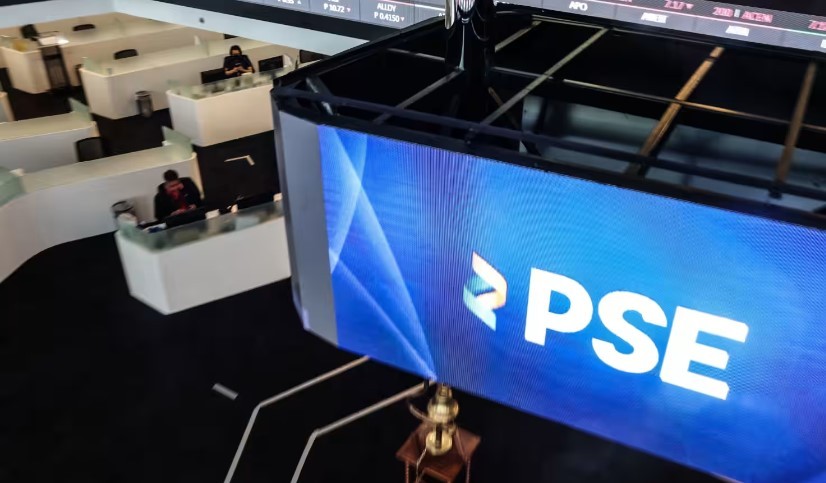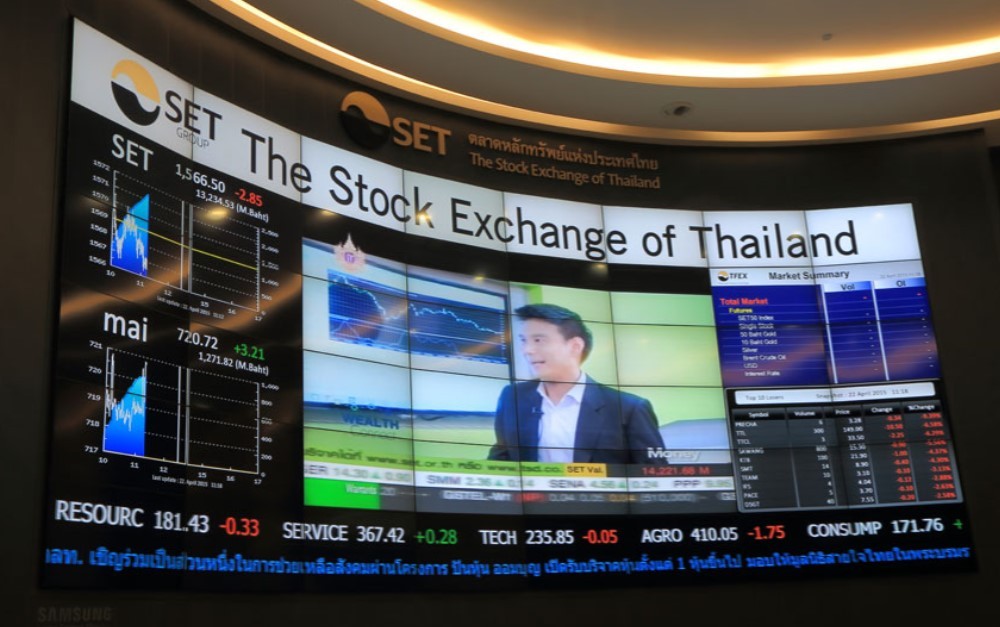Can Foreigners Buy or Invest in Chinese Stock Market?
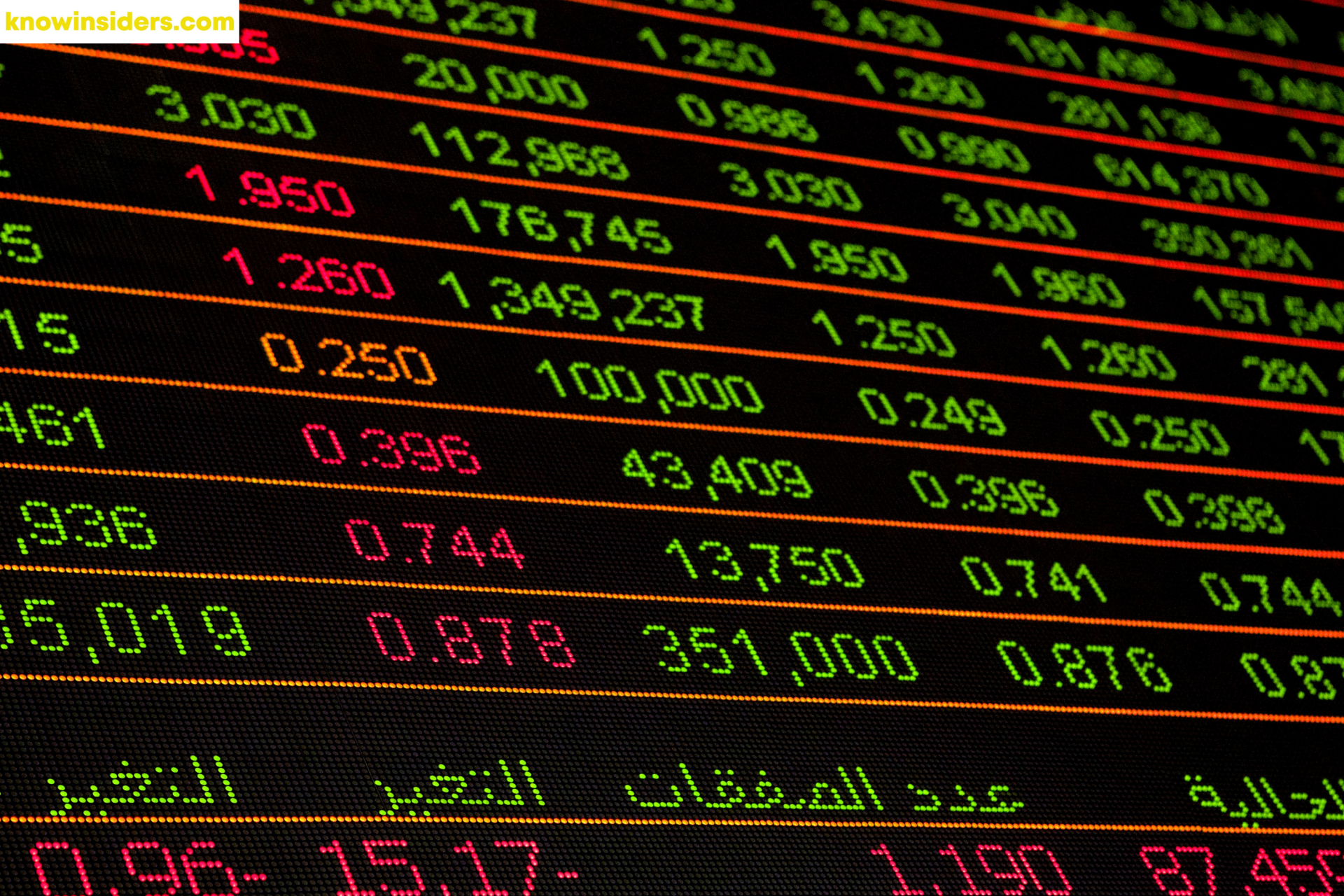 |
| Can Foreigners Buy or Invest In Chinese Stock Exchange Market? Photo KnowInsiders |
As of September 2018, qualified foreign individual investors are authorized to open securities accounts to invest in the Chinese stock market and trade A-shares.
Foreigners living and working in China have the first-hand information about the Chinese capital market. This has prompted many to try to invest in the stock market. Previously, strict restrictions were imposed on foreign investors.
As of September 15, 2018, the China Securities Regulatory Commission had lifted these with the intention to further open the financial market of Mainland China. Thus, certain foreign investors, such as non-citizens working in the country and those employed by mainland-listed companies can trade A-shares.
Of course, some limitations prevail, such as eligible investors must originate from countries whose securities regulators have agreed to partner the China Securities Regulatory Commission (CSRC). These partners include 62 countries and territories as of August 16, 2018 (some of these being the United States, Australia, Singapore, Russia, the United Kingdom, Japan, Malaysia, France, Germany, Brazil and many more).
Overview of Chinese share classes and securities
China’s stock markets offer a variety of different financial products. Shares of Chinese companies are separated into different ‘share classes’. The different classes denote several characteristics, including the trading currency, type of company, location of the listing, and accessibility.
Some companies will list multiple classes of shares or list concurrently on different stock exchanges in order to reach a wider pool of investors. Companies that list on both a domestic and foreign stock exchange will necessarily also be issuing different share classes.
Below we provide a brief overview of the different financial products that investors can trade and the different share classes that Chinese companies (including those incorporated overseas) can issue.
A-shares
A-shares are RMB-denominated stocks of companies incorporated in the Chinese mainland and listed on one of China’s stock markets.
A-shares have in the past only been accessible to Chinese citizens but have gradually been opened up to outside investors through programs such as the QFII, RQFII, and Stock Connect programs. However, as foreign investors and institutions must meet certain eligibility criteria to participate in these programs, A-shares are still not fully accessible to non-Chinese investors.
A-shares are listed on both the Shanghai and the Shenzhen stock exchanges. A-shares represent the majority of shares listed on China’s stock markets. The electronics giant Midea Group, Fosun Pharma, and the Industrial and Commercial Bank of China (ICBC), all have A-shares listed on domestic stock exchanges.
B-shares
B-shares are shares issued by companies incorporated in the Chinese mainland on Chinese mainland stock exchanges but denominated in non-RMB currencies. B-shares are denominated in RMB but are traded in U.S. dollars (USD) on the Shanghai Stock Exchange and in Hong Kong dollars (HKD) on the Shenzhen Stock Exchange.
B-shares are open to foreign investors and domestic investors with foreign currency accounts. Examples of companies with B-shares include Hainan Airlines and the real estate giant Vanke, which are listed on the SSE and SZSE respectively.
H-shares
H-shares are shares issued by companies incorporated on the Chinese mainland and listed on an overseas exchange, most commonly the Hong Kong Stock Exchange (HKEX). H-shares are denominated and traded in HKD and are fully accessible to foreign investors.
There are currently 271 H-shares listed on the Main Board of the HKEX and a further 18 on the Growth Enterprise Market (GEM) board1. Companies with H-shares listed on the HKEX include the likes of CITIC Securities, Tsingtao Brewery, and ZTE Corporation, all of which are incorporated in the Chinese mainland.2
N-shares
N-shares are shares issued by companies incorporated outside the Chinese mainland and listed on foreign stock exchanges, most commonly U.S. stock exchanges, such as the New York Stock Exchange (NYSE), Nasdaq, and NYSE Market. N-shares traded on U.S. stock exchanges are denominated and traded in USD. Although they are incorporated outside the Chinese mainland, N-share companies must earn most of their revenue in China.
Examples of N-share companies include the likes of Alibaba Group and Baidu Inc., both of which are incorporated in the Cayman Islands and are listed on the NYSE and Nasdaq, respectively.
Red chip shares
Red chips are shares issued by companies incorporated outside of the Chinese mainland and listed on the HKEX. Red chip companies are normally at least partially controlled by the Chinese government but conduct the majority of their business outside of China. Most red chip companies are incorporated in Hong Kong.
Red chip shares are denominated and traded in HKD and are fully accessible to foreign investors.
An example of a red chip company is the electronics giant Lenovo, which is partially owned by the Chinese government and incorporated in Hong Kong.
P chip shares
P chip shares are shares issued by companies incorporated outside of the Chinese mainland and listed on the HKEX. Unlike red chip companies, P chip companies are privately owned. They are also most commonly incorporated in Hong Kong. P chips are denominated and traded in HKD and are fully accessible to foreign investors.
Depository receipts
Chinese companies wishing to reach investors in overseas stock exchanges can also choose to do so by issuing depository receipts (DRs). DRs are not technically shares, rather a certificate issued by a bank representing the share of a foreign company. To issue DRs, a portion of a company’s shares listed on an overseas stock exchange is transferred to a custodian bank. The bank can then issue certificates representing the share in the foreign company to investors in the domestic stock market.
The most common DRs are American Depository Receipts (ADRs) and Global Depository Receipts (GDRs). Chinese companies can issue ADRs on U.S. stock exchanges and GDRs on other international stock exchanges, such as the London Stock Exchange (LSE).
Are you eligible for the stock market?
Under the new regulations as of September 15, 2018, foreigners matching the following criteria can set up A-share trading accounts:
Foreigners with a permanent China residence card.
Foreign employees of listed A-share companies who currently live in China or abroad, as long as participating in the company’s equity incentives.
Foreigners working in China, regardless of whether they have obtained a permanent residence ID card or not.
Foreigners who have established foreign-invested joint-stock companies in China which are listed on the A-share market.
As mentioned earlier, the eligible foreign investors must originate from one of the 62 countries that have signed the regulatory cooperative agreements with the CSRC. The number or qualified investors is estimated to be several hundred thousand of individuals.
How to open an A-share securities account?
What if you can’t apply in person? Say, you’re a foreign employee of an A-share listed firm and participate in their equity benefit program but work abroad.
Fear not, you can still open an account by providing some additional materials:
Prepare the documents below:
-“Application Form for Securities Account Opening”.
-Foreign passport, permanent residence and photocopies of these.
-Employment certificate issued by the domestic institution (see Annex 1).
-Business-license of the institution or a copy of the unified social-credit code certificate (all need to be officially stamped).
-Tax payment certificate.
What Does Time Chinese Stock Market Open and Close?
How to Invest in the Shanghai Stock Exchange
Shanghai Listing Requirements
The Shanghai Stock Exchange lists 1,490 companies, including some of the largest companies in the world. Many were formerly state-run enterprises that became partially or fully privatized after the Chinese government liberalized its policies toward capitalism beginning in the 1980s.
The China Securities Regulatory Commission has to approve companies to be listed on the Shanghai exchange. Requirements for a Main Board listing include posting three consecutive years of profitability and, for the same period, absence of any major adverse changes in its main business, directors and senior managers. In addition, companies must meet minimum standards for net assets, cash flow, revenue and net income.
The STAR Market listing requirements accommodate smaller and less well-established companies, with an added emphasis in innovation. In addition to meeting benchmarks for market value, net profit and cash flow, companies must invest a certain minimum share of revenue in research and development.
Shanghai Stock Exchange Largest Companies
The largest companies on the Shanghai exchange include a number of banks and insurance companies and some of the world’s biggest companies. Ranked by market capitalization, they are:
Kweichow Moutai, world’s largest beverage company, maker of China’s top liquor brand
Industrial and Commercial Bank of China, the world’s largest bank
Agricultural Bank of China, a formerly state-run bank
China Life, China’s biggest state-owned life insurer
Ping An Insurance, provides insurance, fintech and health technology
| Because of the restrictions on trading by foreign investors, most investors in the Shanghai Stock Exchange do so by buying and selling exchange-traded funds and American Depositary Receipts. The Shanghai Stock Exchange Composite Index is made up of all the stocks traded on the exchange and is often used an indicator of the Chinese market’s performance. Many investment companies offer China funds that invest in stocks traded on the Shanghai Stock Exchange, among other Chinese exchanges, and sometimes the Hong Kong and Taiwan exchanges. This can be a more convenient way to invest in Chinese companies. Such China funds may focus on small-cap stocks, income-producing securities and other specialties. |
Tips for InvestingAs the world’s second-biggest economy, China represents an attractive opportunity for investors, but trading on the Shanghai Stock Exchange is different from the NYSE and NASDAQ. Before investing in this market, considering working with an experienced financial advisor. Finding one doesn’t have to be hard. SmartAsset’s free tool matches you with financial advisors in your area in five minutes. If you’re ready to be matched with local advisors who will help you achieve your financial goals, get started now. Since investing in non-U.S. securities is one of the riskier types of trading it’s important to keep close tabs on how much of your portfolio goes into such investments. A free, easy-to-use asset allocation calculator can be immensely helpful in keep your investments balanced. |
Trading Stocks in Hong Kong
Besides the notable tax advantages of trading stocks in Hong Kong, the locale also provides an important venue for investing in Mainland China stocks. Some of the most recognizable Hong Kong stocks include Baidu (Nasdaq: BIDU), Alibaba (Nasdaq: BABA) and Tencent (OTCBB: TCEHY).
The highest concentration of equity in Hong Kong stocks is in the financial sector’s 539 stocks with a market capitalization of over $2.3 trillion. The financial sector is followed by technology services, retail trade, health technology and consumer and nonconsumer durables.
Since ending its open outcry trading method in 2017, all trading on the exchange is done electronically via the exchange’s Automatic Order Matching and Execution System (AMS). The AMS was upgraded in 2000 and the system can be used to trade warrants, commodities, currency pairs and fixed-income products.
If you’re based outside of Hong Kong, many of the stocks of the largest and best capitalized Hong Kong companies listed on the SEHK can be traded on major U.S. stock exchanges through American depository receipts (ADRs).
Regardless of where you trade from, you can open an international brokerage account that gives you access to trade Hong Kong stocks directly on the SEHK or through ADRs on U.S. exchanges.
To begin buying Hong Kong stocks you’ll need to take the following steps:
How to Buy Stocks in Hong Kong
Open a Trading Account
To trade in any financial market, you need to open a trading account with a reputable broker, whether you’re based in Hong Kong or elsewhere. You can open a local brokerage account with a Hong Kong-based broker as a foreigner, however, keep in mind that restrictions might exist for citizens of certain countries like the U.S.
Stock brokers based outside of the U.S. must be registered with the U.S. Securities Exchange Commission (SEC) and comply with the Foreign Account Tax Compliance Act (FATCA) in order to accept U.S. clients. This is one reason that many local Hong Kong brokers refuse to take on U.S.-based clients.
While considerable hurdles can exist for foreigners opening an account with a local Hong Kong broker, the commission savings can be substantial. For example, Fidelity Investments charges $250 HKD ($32) per trade on the SEHK, while a local broker based in Hong Kong would only charge $8 HKD ($1) per trade.
If you decide to open an account with an international online broker, you may be able to trade select Hong Kong stocks using ADRs listed on U.S. exchanges free of commission. For example, brokers such as Robinhood and E*TRADE offers commission-free trading in stocks and ADRs traded on U.S. exchanges, which would include ADRs on some Hong Kong stocks.
Fund a Trading Account
If you’re based in Hong Kong, you probably have a Hong Kong bank account from which you can transfer funds to a brokerage account. For traders based outside of Hong Kong, many brokers will let you open an account without a minimum deposit, although once you decide to buy stocks, you’ll have to deposit the appropriate amount in the account.
Some brokers — especially those based outside of the U.S. — routinely ask for a minimum deposit to purchase stocks. You’ll also need to provide documents proving your identity and address, and most brokers will screen account holders to determine their level of financial markets experience via a “know your client” (KYC) protocol.
Get a Trading Platform
After completing the steps above, you’ll have a funded stock trading account open with either a stock broker based in Hong Kong or an international broker. If you plan on trading online, you’ll have to obtain access to a trading platform supported by your chosen broker.
Some platforms are web-based while others need to be downloaded onto your desktop computer or mobile device. Make sure you know how to use the platform correctly before entering a live trade.
Buy Hong Kong Stock
You can now begin buying Hong Kong stocks. Your choice of broker will determine whether you can do so directly on the SEHK or through ADRs listed on a major U.S. exchange.
Best Online Brokers for Trading in Hong Kong
For traders based in Hong Kong, a subsidiary of the Hong Kong Shanghai Banking Corp. (HSBC) called HSBC Broking Services Limited provides a complete brokerage service for the SEHK and is fully regulated by the Hong Kong Securities and Exchange Commission (HKSEC). Also, you may be able to access HSBC’s other subsidiaries that include HSBC Broking Forex, HSBC Broking Futures and HSBC Broking Securities.
Traders based outside of Hong Kong can trade stocks directly on the SEHK through an account with major online brokers like Interactive Brokers or Saxo Bank. With Interactive Brokers, you also have the option of trading ADRs on Hong Kong stocks for a considerably reduced commission charge.
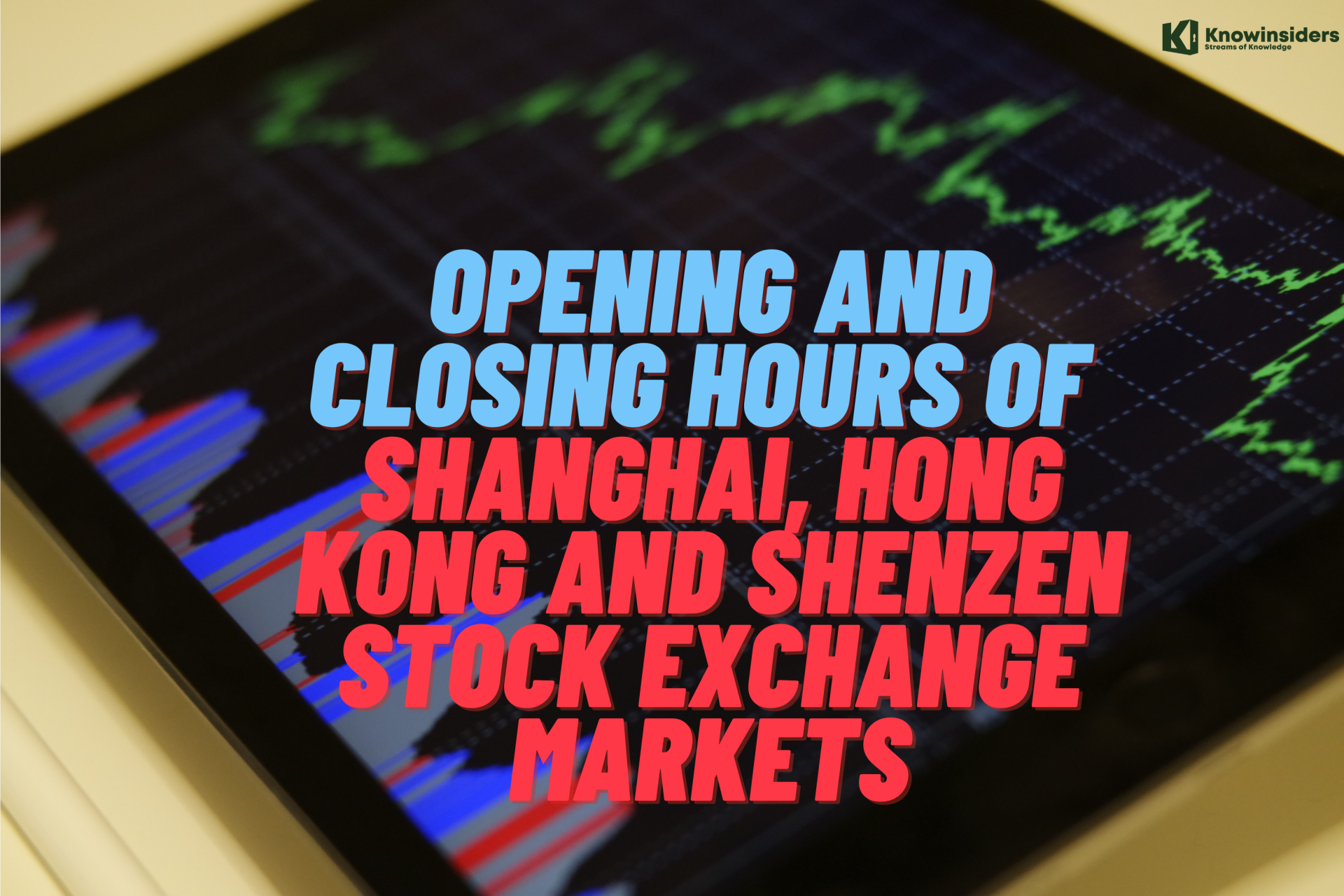 What Does Time Chinese Stock Market Open and Close? What Does Time Chinese Stock Market Open and Close? What Time Do Shanghai, Hong Kong and Shenzen Stock Exchange Markets Open and Close? Let's find the answers in the article below! |
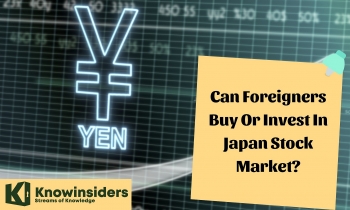 Can Foreigners Buy Or Invest In Japan Stock Market? Can Foreigners Buy Or Invest In Japan Stock Market? How to buy (invest in) stocks in Japan for overseas residents? Check out the guidelines and tips for investing the Japan Stock Market for foreigners! |
 Can Foreigners Buy Or Invest In Australian Stock Market? Can Foreigners Buy Or Invest In Australian Stock Market? How to buy (invest in) stocks in Australia for overseas residents? Read on to know the guidelines and tips for investing the stocks in Australia ... |



